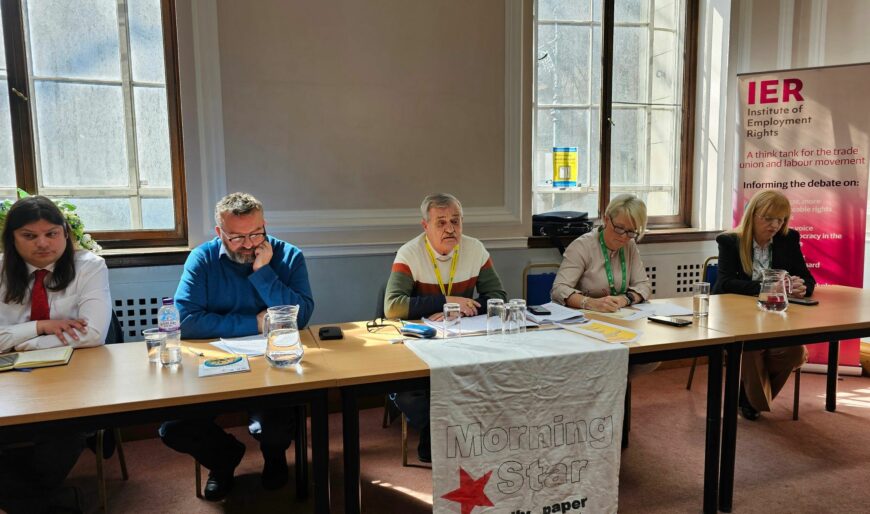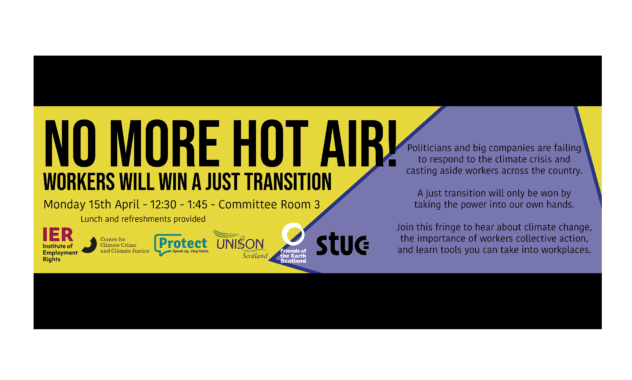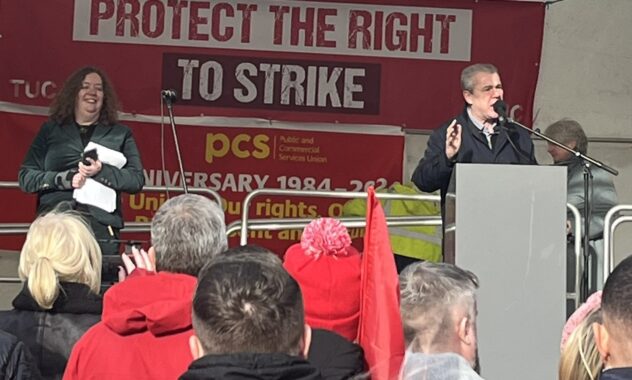How can we resist the Tory war on democracy and union rights, Morning Star-IER STUC fringe asks
Morning Star report on STUC fringe meeting

Trade unionists asked how to resist an escalating war on workplace and democratic rights at a packed Morning Star-Institute of Employment Rights (IER) fringe meeting at Scottish TUC today.
Speakers slammed misrepresentation of unions and their struggles in the monopoly media, pointing to the key role of the Morning Star as the exception to the rule as a daily newspaper reporting and agitating for the labour movement.
Using atypical examples of highly trained and responsible positions such as consultants and surgeons in the NHS or train drivers on the railway to imply high wages across the sector was a common trick noted by Unite’s Sylvia Stewart and Ann Joss of RMT.
“The NHS is much more than doctors and nurses,” Ms Stewart pointed out. “It’s a huge organisation with hundreds of roles all working together and doing very specific tasks.”
The reality of poverty pay for porters and domestics in the NHS or cleaners on the railway network never featured in Establishment press reports — and neither did the six-figure salaries commanded by directors at rail operating companies who get rewarded for failure and often have no background in the sector or understanding of the way the railway works.
IER director Ben Sellers detailed the threat to strike rights posed by the Strikes (Minimum Service Levels) Bill and the Public Order Bill’s role in undermining protest rights, while the Morning Star’s Ben Chacko said the legislation was part of a much broader attack on democratic and civil liberties across the board.
Speakers from the floor called for building community support around disputes and using this to join the dots between issues to forge a more coherent resistance to the war on our rights.
This article was first published in the Morning Star. We thank them for permission to reproduce it here.







